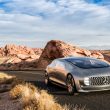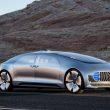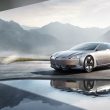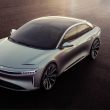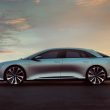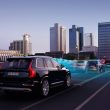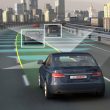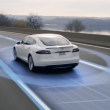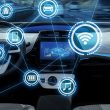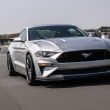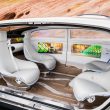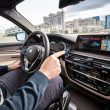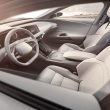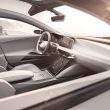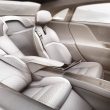Do carmakers fear self-driving cars?
Ever increasing autonomy in passenger cars is an emerging trend, and almost every major automaker is committed to including advanced driver assist systems (ADAS) like auto-emergency braking, lane departure warning and adaptive cruise control in their vehicles today. Tesla Autopilot, Cadillac Super Cruise, Nissan ProPilot Assist, Volvo Pilot Assist, Toyota Safety Sense P, Honda Sensing, BMW DriveAssist, all have taken over the automotive industry by storm lately. So why is it that I think that car makers may fear self-driving cars at the same time as they are developing them.
Firstly, developing autonomous vehicles for many automakers spells an increase in liabilities. In addition to the complex array of sensors and ECUs that will be required to enable substantial autonomy that may negatively impact reliability, the entire road behaviour is now the responsibility of the self-driving program in the car (and hence its manufacturer). Think about it, you are driving your car and are involved in an accident, in the current state of things you and the other party would be held responsible for the damages involved. However in the future, when two self-driving cars crash with each other, who is to be held accountable? You were just in that car, and the car was driving itself! This issue remains the Achilles’ heel regarding the legislature associated with autonomous cars, similarly to how the recent crashes involving Uber’s autonomous vehicle and Tesla’s autopilot system remains a tough nut to crack for lawmakers and legislators. This increase in legal liabilities is of concern to every manufacturer which intends to step into the world of self-driving cars.
The prospects of the first few car accidents involving autonomous vehicles keep carmakers awake at night as well. According to statistics from ASIRT (Association for Safe International Road Travel), vehicle road crashes account for 1.3 million casualties globally. That means (on average) over 3287 people will die today in road crashes worldwide and may not even get an obscure paragraph in a local newspaper. However, I can guarantee that the first few crashes involving autonomous vehicles will be in international headlines, as we saw with countless Tesla Autopilot crashes and of course with the much-publicized Uber autonomous vehicle crash.
Also Read: Uber autonomous vehicle kills a pedestrian
It seems we don’t cut machines the same slack that we do our sloppy human selves. The negative publicity that results whenever an autonomous vehicle crashes, is something not only a vehicle manufacturer dreads but also holds back the development of self-driving cars in general. The notion that self-driving cars will be crash-free is flawed, and all of us need to accept the fact that self-driving cars will make some fatal mistakes down the road, but until that happens, the sheer volume of headlines around an autonomous vehicle crash is enough to keep most automakers at bay.
The ongoing trend towards autonomy has also cost performance brands like BMW M, Mercedes-AMG, Audi’s Quattro Division, Bugatti, Lamborghini, Porsche and many others a good night’s sleep as increasing autonomy makes a faster, more fun to drive and engaging car less and less relevant. Will you care about 0-100 km/h times, horsepower or torque figures when the car is driving itself as efficiently as possible based on environmental factors? I don’t think so. This could spell the death of many performance icons. Granted such an event will not happen overnight and many brands will have the time to respond and adapt, but this is one deadly game of musical chairs and every manufacture playing the performance car game fears the prospect of being left “chair-less” when the music stops.
Tying into the point above, autonomous cars may also lead to a decline in our love for cars and driving in general (I hate to talk about this). Many of us have sentimental values towards the vehicles we own. Slogans like “Mein Te Honda Hi Lesan” and the fact that many people just pick a car, the second biggest purchase of their lives, purely based on its brand, mystique, charm and the ostentation associated with that speaks volumes about the emotional attachment we have with cars. Now ask: will you have the same kind of emotional fervour with your car when it is just a self-driving appliance? Autonomy may be the driving force that causes our love for cars and driving to gradually fade away, lets not about it anymore.
But perhaps the terrifying prospect that car makers foresee when they develop self-driving cars is the inevitable future with fewer car sales. According to a 2013 report by ReInventingParking.org, the average new car spends 89-96% of its life parked! Even BMW’s “Ultimate Driving Machine” is just the “Ultimate Parking Machine” when it comes to reality. Self-driving cars aim to fix this discrepancy by offering an intriguing ride and car sharing programs, like the ones Uber and Google have planned for the future which may enable people who cannot drive or are not interested in driving, interesting new ways to ways to reach their destinations. This will dramatically reduce the amount of time a car spends parked, doing nothing. Put all these together, and one reaches to the inescapable conclusion that carmakers will simply sell fewer cars in the distant future and in my opinion nothing scares them more than fewer sales.
Also Read: Tesla Model X involved in a fatal crash after switching to autopilot
So, in conclusion, let’s answer the question I asked a while ago; Do carmakers fear self-driving cars? Probably not. As with every major change in the automotive industry, autonomy stirs up mixed opinions and offers an enticing new prospect for the cars of tomorrow. It comes with quite a few challenges that are going to plague the minds and PR departments of automakers stepping into the world of autonomy. However I am a believer when to self-driving cars in general, they may not be crash-proof, but they will crash less often and less severely, they make not eliminate road fatalities but they will drastically reduce that number, and they will almost certainly revolutionize the way we approach cars.
So these were my two cents on what goes in a carmakers mind as they think about potential hurdles, stepping into the world of autonomy. Do you have anything to add? Be sure leave your thoughts in the comments below and as always stay tuned to PakWheels.com


